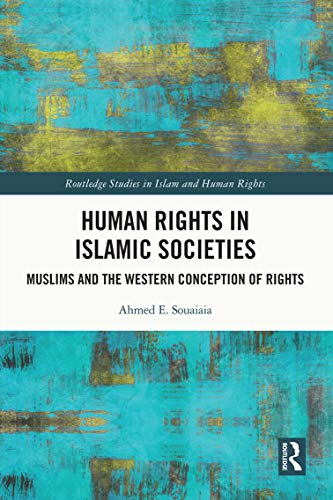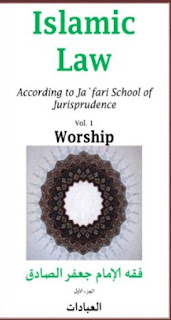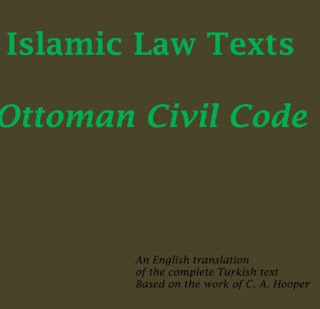Detestation
(Al-Khulc)
Khul' is a form of divorce in which the wife releases herself (from the marriage tie) by paying consideration to the husband. Here we have the following issues.
The Condition of the Wife's Detestation
When they both agree to khul' and she pays him the consideration to divorce her, though they are well settled and their conduct towards each other is agreeable, is their mutual agreement to khul' valid? The four schools state: The khul' is valid and the rules applicable to it and their effects will follow. But it is makruh7 (detestable though lawful). According to the Imámís, such a khul' is not valid and the Divorcer will not own the consideration. But the divorce (so pronounced) will be valid and revocable if all the conditions for revocability are present. The proof they offer are traditions of the Imáms of the Ahl al Bayt (A) and verse 229 of Surat al-Baqarah:
,..Then if you fear that they cannot maintain the limits set by Allah, there is no blame on the two for what she gives to release herself
wherein the verse has made the validity of consideration contingent upon the fear of sinning in case the marital relationship were to continue.
Mutual Agreement to Khulc for a Consideration Greater than Dowry:
The schools concur that the consideration should have material value and that its value may be equal to, lesser, or greater than the Dowry.
Conditions for Consideration Payable in Khulc
According to the four schools, it is also valid to conclude a khul' agreement with anyone apart from the wife. Therefore, if a stranger asks the husband to divorce his wife for a sum which he undertakes to pay, and the husband divorces her, the divorce is valid even if the wife is unaware of it and on coming to know does not consent. The stranger will have to pay the ransom to the Divorcer.(Rahmat al-'ummah and Farq al-zawaaj of al-'Ustadh al-Khafif)
The Imámís observe: Such a khul' is invalid and it is not binding upon the stranger to pay anything. But it is valid for a stranger to act as a guarantor of the consideration by the wife's permission and ask the husband, after the wife's permission, to divorce her for such a consideration guaranteed by him. Thus, if the husband divorces her on this condition, it is binding on the guarantor to pay him that amount and then claim it from the divorcee.
All that which is validly payable as Dowry is also valid as consideration in khul', by consensus of all the five schools. It is also not necessary that the amount of consideration be known in detail beforehand if it can be known eventually ~(such as when she says: "Grant me khul ' for that which is at home", or "in the locker", or "my share of inheritance from my father", or "the fruits of my garden").
If khul' is given in return for that which cannot be owned, such as liquor or swine, the Hanafi, the Maliki and the \anbalí schools observe: If both knew that such ownership is haraam, the khul' is valid and the Divorcer is not entitled to anything, making it a khul ' without consideration. The Sháfi`ís say: The khul' is valid and she is entitled to the Fair Dowry.(al-Mughni, vol. 7)
Most Imámi legists state: The khul' shall be void and the divorce will be considered revocable if it is an instance of revocable divorce; otherwise, it will be irrevocable. In all the cases, the Divorcer shall not be entitled to anything.
If the husband grants her khul ' for a consideration that he believes to be halal and it later turns out to be haraam (such as when she says: "Grant me khul' for this jar of vinegar," which turns out to be wine) the Imámi and the \anbalí schools observe: He shall claim from her a similar quantity of vinegar. The \anafís state: He shall claim from her the stipulated Dowry. According to the Sháfi`í school, he shall claim from her the Fair Dowry. If she seeks khul' for a consideration she considers to be her property and it turns out to be someone else's, the H. anafi school and most Imámi legists observe: If the owner allows it, the khul' will b valid and the husband will take it, but if he disallows, the husband entitled to a similar consideration either in cash or kind. The Sháfi`í school states: The husband is entitled to Fair Dowry. This is in accordance with the Sháfi`í principle that when a consideration becomes invalid, it becomes void and Fair Dowry becomes payable (Maqsad al -nabeeh. According to the Maalikees, the divorce becomes irrevocable, the consideration becomes void, and the divorcer gets nothing even if the owner permits (al-Fiqh 'ala al-madhahib al-'arba'ah, vol.4).
If the wife seeks khul'' by undertaking to nurse and maintain hi child for a certain period, the khul' will be valid and she will be bound to nurse and maintain the child, as per consensus. The Hanafi, the Maaliki and the \anbalí schools further clarify that it is valid for a pregnant wife to seek khul' from her husband in return for maintaining the child in her womb, on the same grounds on which it is valid for her to seek khul' by undertaking the maintenance of a born child. I have no come across in the Imámi and Sháfi`í sources accessible to me anyone who has dealt with this issue, although the principles of the Shari'ah do not prohibit it, because the cause, which is the child in the womb, in the present, and the wife's pledge is a condition by which she binds her to the effect that in the event of the child being born alive she will responsible for its nursing and maintenance for a specific period, all Muslims are bound by the conditions they lay down, provided this do not result in a halal becoming haraam or vice versa. Hence this condition is valid in itself, for it does not suggest anything legally void; therefore its fulfilment is compulsory because it is part of a binding contract. The uncertainty concerning the child being born alive or dead, and its dying after birth before the stipulated period, is overlooked in a khul
The furthest one can go in asserting its impermissibility an invalidity is by likening a pledge to maintain with a discharge from maintenance. Therefore, when a discharge from maintenance is invalid because it is an annulment of something not binding, similarly a pledge to maintain is not valid because it is not presently wajib. But there is great difference between a pledge and a discharge, because it is necessary that a discharge be from something present and actual, while pledge need not be so. Apart from this, we have already discussed in the chapter on marriage regarding khul' in return for foregoing t~ right to custody of a child by the father or the mother.
A Related Issue
If a husband grants khul' to his wife in return for her maintaining the child, she is entitled to claim the child's maintenance from its father on her not being able to maintain it, and he will be compelled to the maintenance. But he can reclaim this maintenance from the mother if she comes to possess the means. If the child dies during the stipulated period, the Divorcer is entitled to claim a compensation for the remaining period in accordance with the words of the verse (2: 229) A)xxxxxxIt is better for a woman to undertake the nursing and maintenance of the child for a certain period so long as it is alive. Then the Divorcer will not have the right to a claim against her if the child dies.
Conditions for a Wife Seeking Khulc
There is consensus among the schools that a wife seeking khul' should be a sane adult. They also concur that the khul' of a stupid (safeeh) wife is not valid without the permission of her walee (guardian). The schools differ regarding the validity of khul' where the guardian has granted her the permission to seek khul'. The \anafís observe: If the guardian undertakes to pay the consideration from his own personal assets, the khul ' is valid; otherwise, the consideration is void, while the divorce takes place, according to the more authentic of two traditions (Abu Zuhrah).
The Imámi and the Maliki schools state: With the guardian's per mission to her to pay the consideration, the khul' is valid by payment from her wealth, not his. (al-Jawahir and al-Fiqh 'ala al-madhahib al- 'arba'ah )
` The Sháfi`í and the \anbalí schools consider the khul ' of a stupid wife as invalid irrespective of the guardian's permission. The Sháfi`í school allows one exception to the above opinion, wherein the guardian fears the husband 's squandering her wealth and grants her permission to seek a khul' from him for the protection of her property. The Sháfi`ís then add: Such a khul' is invalid and the divorce is revocable. The \anbalís say: Neither the khul' nor the divorce will take place except when the husband intends a divorce through khul ' or if the khul ' takes place in the words of a divorce.
If a woman seeks khul' during her last illness, it is considered valid by all schools. But they differ where she pays as consideration more than a third of her wealth or more than the husband's share to be inherited from her on assumption of her death during the 'iddah. As said above, they inherit from each other in this situation.
The Imámi and the Sháfi`í schools state: If she seeks khul' for Fair Dowry, it is valid and the consideration is payable from her undivided legacy. But if it exceeds Fair Dowry, the excess will be deducted from one-third of her legacy.
The \anafís observe: Such a khul' is valid and the Divorcer is entitled to the consideration if it does not exceed either one-third of her wealth or his share of inheritance from her were she to die during the 'iddah. This means that he will take the least of the three amounts: the consideration of the khul', his share of inheritance from her, or a third of her legacy. (Therefore, if the consideration for the khul' is 5, his share of inheritance 4, and a third of her legacy 3, he shall be entitled to 3).
According to the \anbalí school, if she seeks khul' in return for a consideration equaling his share of inheritance from her or something lesser, the khul ' and the consideration are valid. But if she seeks khul ' for a higher consideration, only the excess will be void (al-Mughni, vol. 7).
The Imámís moreover require the wife seeking khul' to fulfill all the requirements in a divorcee (such as her purity from menses, non occurrence of intercourse in the period of purity if her marriage has been consummated, her being neither menopausal nor pregnant, her not being a minor below the age of nine). Similarly1 they require the presence of two just witnesses for the khul' to be valid. But the other schools validate a khul' irrespective of the state of the wife seeking it, exactly like a divorce.
Conditions for a Husband Granting Khulc
Excepting the \anbalí ;, all the other schools concur that a husband granting Khulc requires to be a sane adult. The \anbalís state: Khul' granted by a discerning minor (mumayyiz) is valid, as is a divorce given by him. As mentioned at the beginning of this chapter on divorce, the \anafís permit a divorce pronounced in jest, under duress, or in a state of intoxication, and the Sháfi`í and the Maliki schools concur with them concerning divorce pronounced in jest. A khul' granted in a state of rage is valid if the rage does not eliminate the element of intention.
There is consensus among the schools concerning the validity of a khul' granted by a stupid (safeeh) husband. But the consideration will be given to his guardian, and its being given to him is not valid.
Regarding a khul' granted by a sick husband on his death bed, it is undoubtedly valid, because when his divorcing without receiving any consideration is valid, a divorce along with consideration would be more so.
The Pronouncement of Khulc
The four schools permit the use of explicit words—such as derivatives of al-khul' and al-faskh (dissolution)—in the pronouncement, as well as implicit words (such as ''bara'tuki'' [I relinquish you] and "abantuki" [ I separate myself from you ]). The \anafís have said: The use of the words al-bay ' (to sell) and al-shira ' (to purchase) is valid (for instance, when the husband says to the wife: "I sell you to yourself for so much", and the wife replies: "I purchase", or when he says: "Buy your divorce for so much", and she replies: "I accept"). Similarly the Sháfi`í school accepts the validity of a khul' pronounced with the word al-bay '.
The \anafís allow the conditional khul ', the khul ' by exercise of an option; and the khul' in which the pronouncement and the payment of consideration is separated by an extended time interval (such as, where a husband is away from his wife and it reaches him that she has said, "I seek a khul' for so much," and he accepts it). Similarly the Málikís also do not consider the time factor an impediment.
Khul' is valid according to the \anbalí school even without an intention if the word used is explicit (such as, al-khul', al-faskh and al-mufadat); but it requires that the pronouncement and payment take place simultaneously and unconditionally.
The Imámís have said: Khul' does not take place by using implicit words or even explicit words other than al-khul' and al-t.alaq. If desired, they can be used together or singly (thus, she may say: "I pay you this much for divorcing me", and he will reply: "I grant you khul' for it, and therefore you are divorced". This form of pronouncement is the safest and most suitable in the view of all Imámi legists. It also suffices if he says: "You are divorced in return for it," or "I grant you khul ' in return for it"). The Imámís require that khul' should be unconditional, exactly as in divorce, and consider necessary the absence of any time gap between its pronouncement and the payment of consideration.




0 comments:
Post a Comment